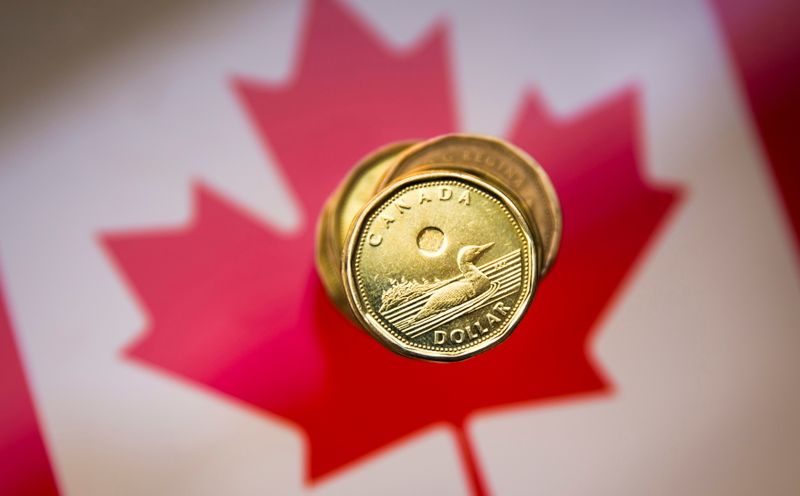By Fergal Smith
TORONTO (Reuters) - Canadian exporters are adjusting their currency hedges and buying the loonie at stronger levels, in a sign market players are growing more confident that the currency's commodity-linked surge this year will stick, foreign exchange dealers say.
The Canadian dollar has climbed nearly 6% against the U.S. dollar since the beginning of the year, the biggest gain among the Group of 10 currencies. On Tuesday, it touched its strongest level since 2015 at 1.2013, or 83.24 U.S. cents.
A stronger loonie could crimp the profit margins and reduce the competitiveness of Canada's exporters. While some are holding out for a pullback in the currency, others are positioning themselves for a further push higher on the back of soaring prices for some of the commodities that Canada produces.
"We have seen our exporters resetting their sights to more realistic levels," said Michael Goshko, corporate risk manager at Western Union (NYSE:WU) Business Solutions.
"There's a perception that there is a lot of runway left to go," Goshko said. "We have seen ex-energy commodity prices move to record highs, and that's before the Canadian economy and the global economy really begin to surge this summer."
The Bank of Canada's commodity price index excluding energy - a category that includes metals and minerals, forestry, agriculture and fisheries - has climbed to its highest level since 1972, while the price of oil, a key Canadian export, has nearly doubled since November.
The Bank of Canada highlighted the country's improving economic fortunes last month when it projected that gross domestic product would grow 6.5% this year and offered more hawkish guidance on its outlook for interest rates.
Some economists expect Canada later this month to post a current account surplus, which would be its first since 2008.
While acknowledging that the rise in commodity prices was good news for the country, Bank of Canada Governor Tiff Macklem said last week that exports could face headwinds if the loonie continued to strengthen.
"There will be boardroom discussions about what do we do if CAD keeps appreciating," said Amo Sahota, director at Klarity FX in San Francisco. "I mean if USD-CAD goes to 1.15, then that's a significant pressure point ... where for some industries it just isn't worth doing the business." (Graphic: CAD value in USD, https://graphics.reuters.com/CANADA-ECONOMY/CURRENCY/azgpogygbpd/chart.png)
'ON THE RADAR'
Forward contracts are the favored hedging tool of many large exporters, including those in the energy, auto and agriculture sectors, while some companies use option structures, paying a premium for downside protection, analysts say.
Brad Schruder, managing director of corporate sales and structuring at BMO Capital Markets, said he has seen a pick-up in the last two weeks of pricing requests for Canadian dollar call options from companies that don't regularly hedge.
"Those types of requests only come around when suddenly FX is on the radar of a C-suite executive that might have considered it an afterthought before," Schruder said.

The loonie has gained ground for seven straight weeks, its longest streak of weekly gains since 2016.
"The Friday that we go home and USD-CAD closes below 1.20, that's the weekend that's going to cause Canadian exporters a lot of grief," Schruder said.